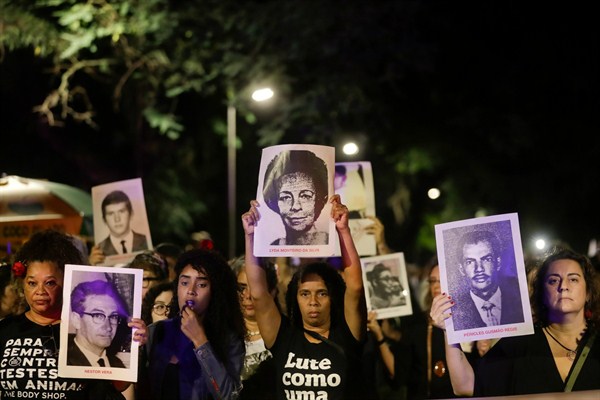In December 1972, when she was 28 years old, Maria Amelia de Almeida Teles was arrested along with her husband and another communist leader while walking down the street in Sao Paulo. The following day, Teles’ two young children and pregnant sister were also taken in. The arrests were carried out by members of the “Operation Bandeirantes” team, a secret police operation formed within the Brazilian army, and had been ordered by Brazil’s military dictatorship, which at the time was led by President Emilio Garrastazu Medici. Though the Medici years are often remembered for the so-called Brazilian Miracle, during which the country experienced remarkable economic growth, they were also a time of heightened repression, as Teles would learn firsthand.
Detained for a year for her work in the Brazilian Communist Party, for which her husband was a regional director, Teles was held in the Sao Paulo unit of the dictatorship’s repressive intelligence agency, known as the DOI-CODI. During her time in custody, she was tortured by Carlos Alberto Brilhante Ustra, the late Brazilian army officer perhaps most notorious for having tortured Dilma Rousseff, who decades later would become president.
In addition to being subjected to sexual assault, including rape, Teles was also strapped into the “dragon’s chair,” an electrocuted chair that gave prisoners repeated shocks. Although her children were only held for days, her husband, Cesar Teles, remained in prison for 5 years. Her sister, Crimeia de Almeida, who was eight months pregnant when she was arrested, was also tortured until the eventual birth of her son, from whom she was subsequently separated for 53 days.

